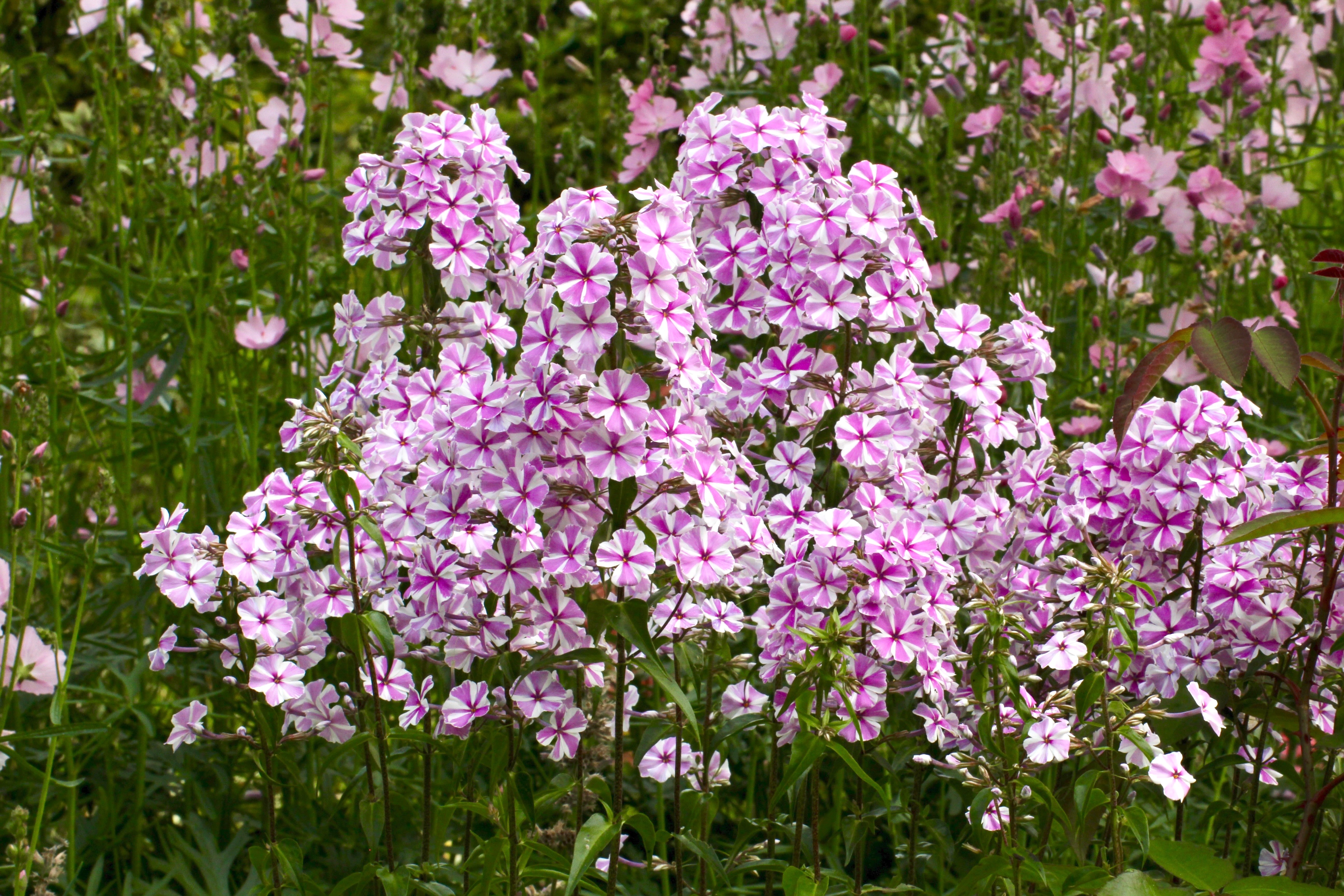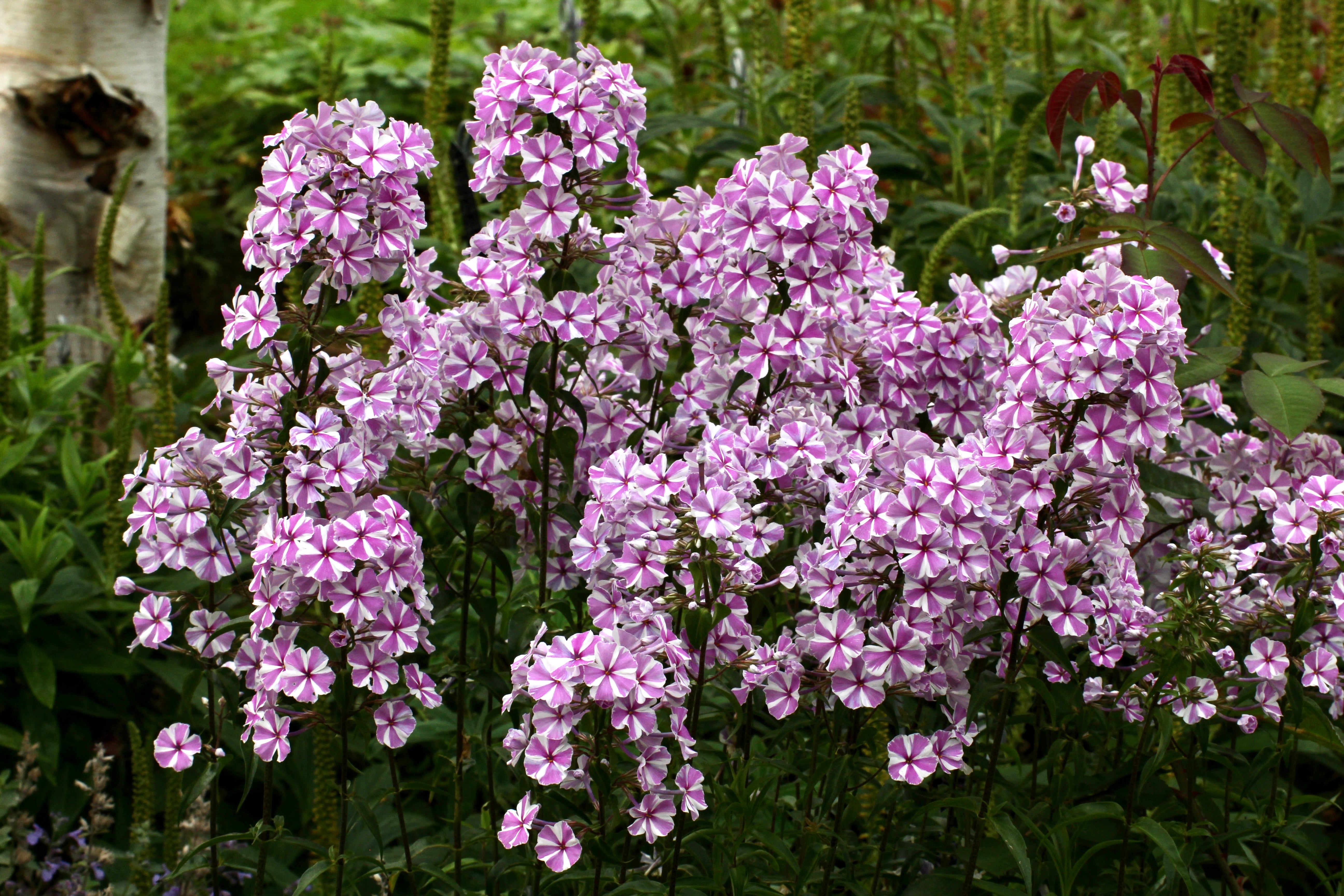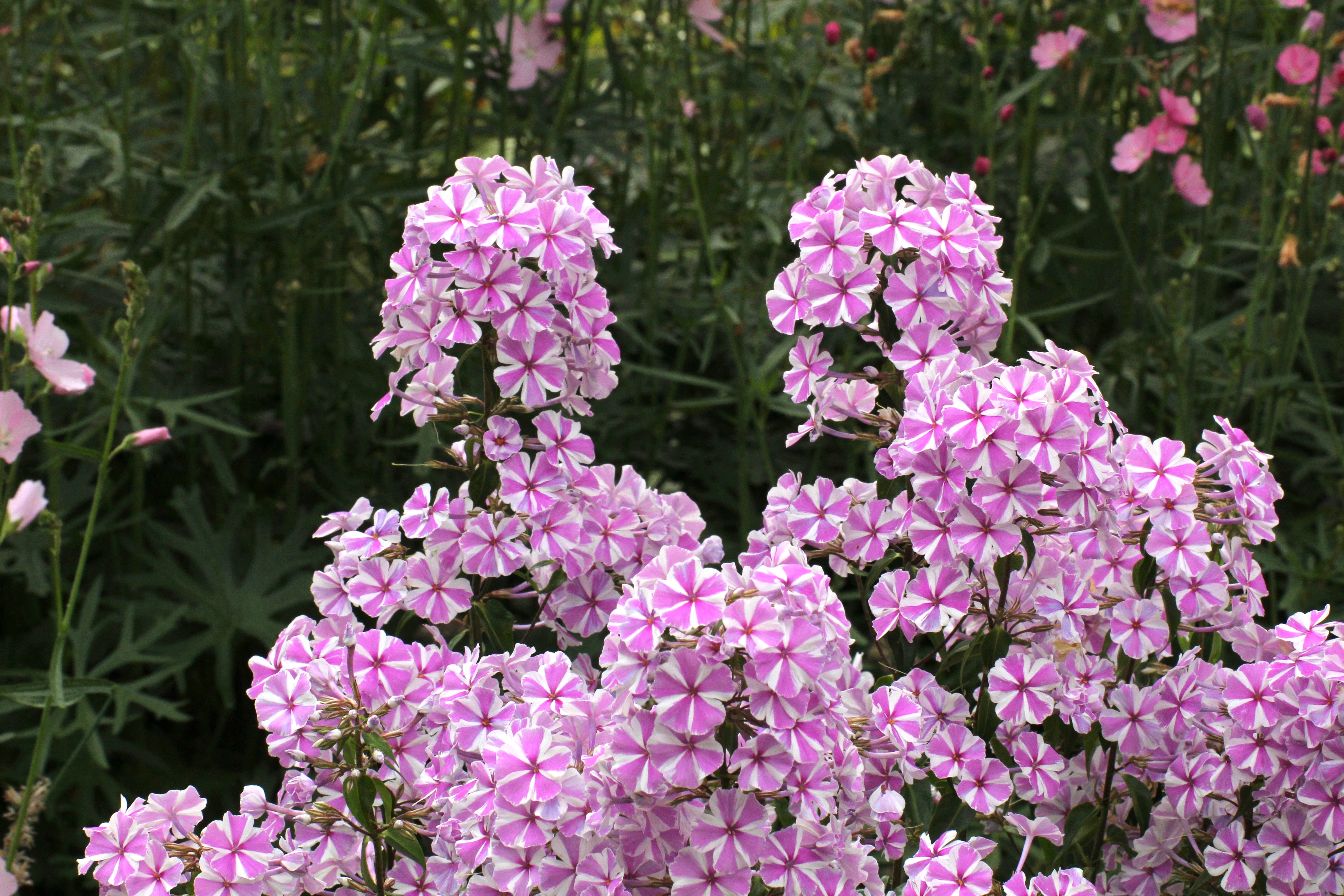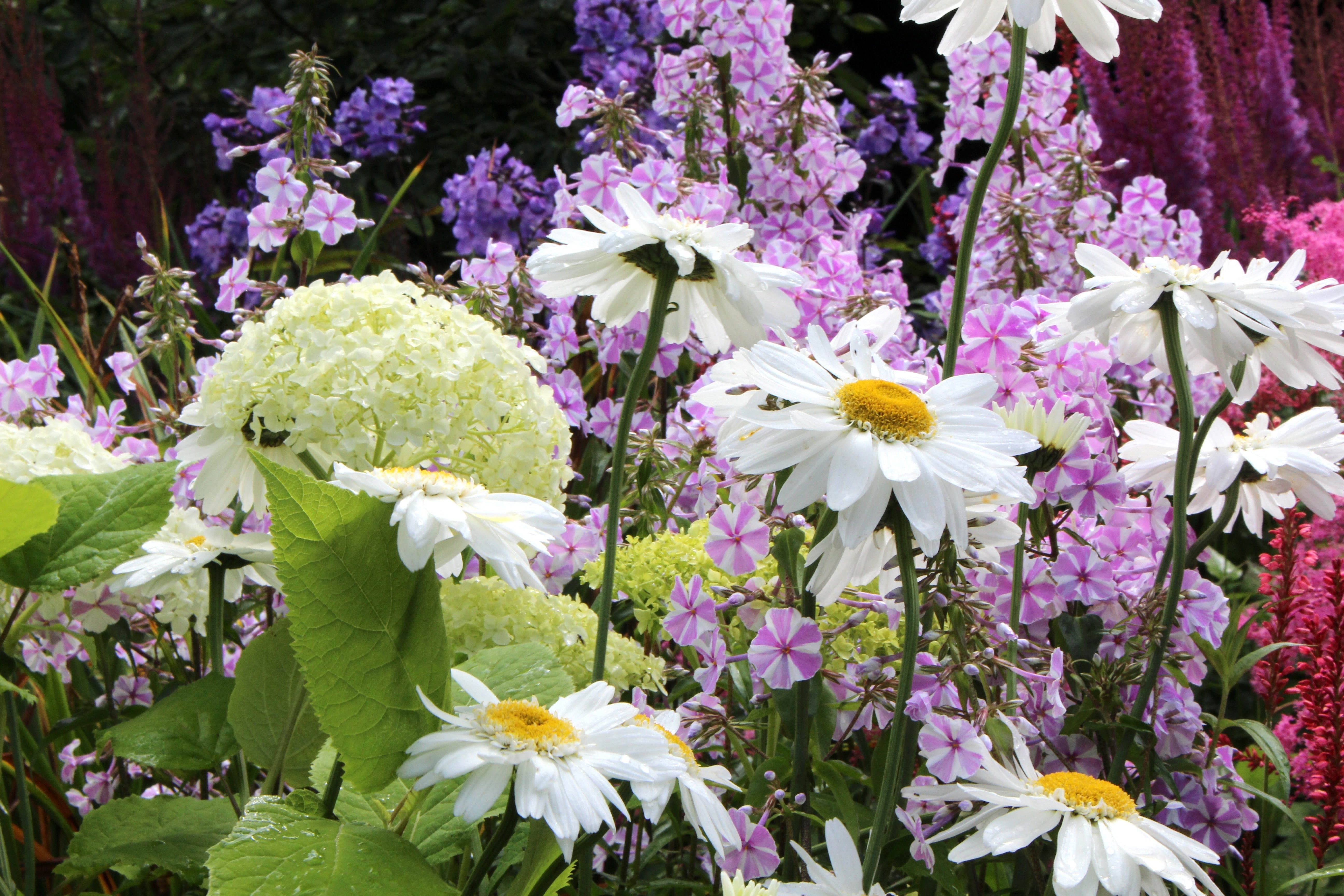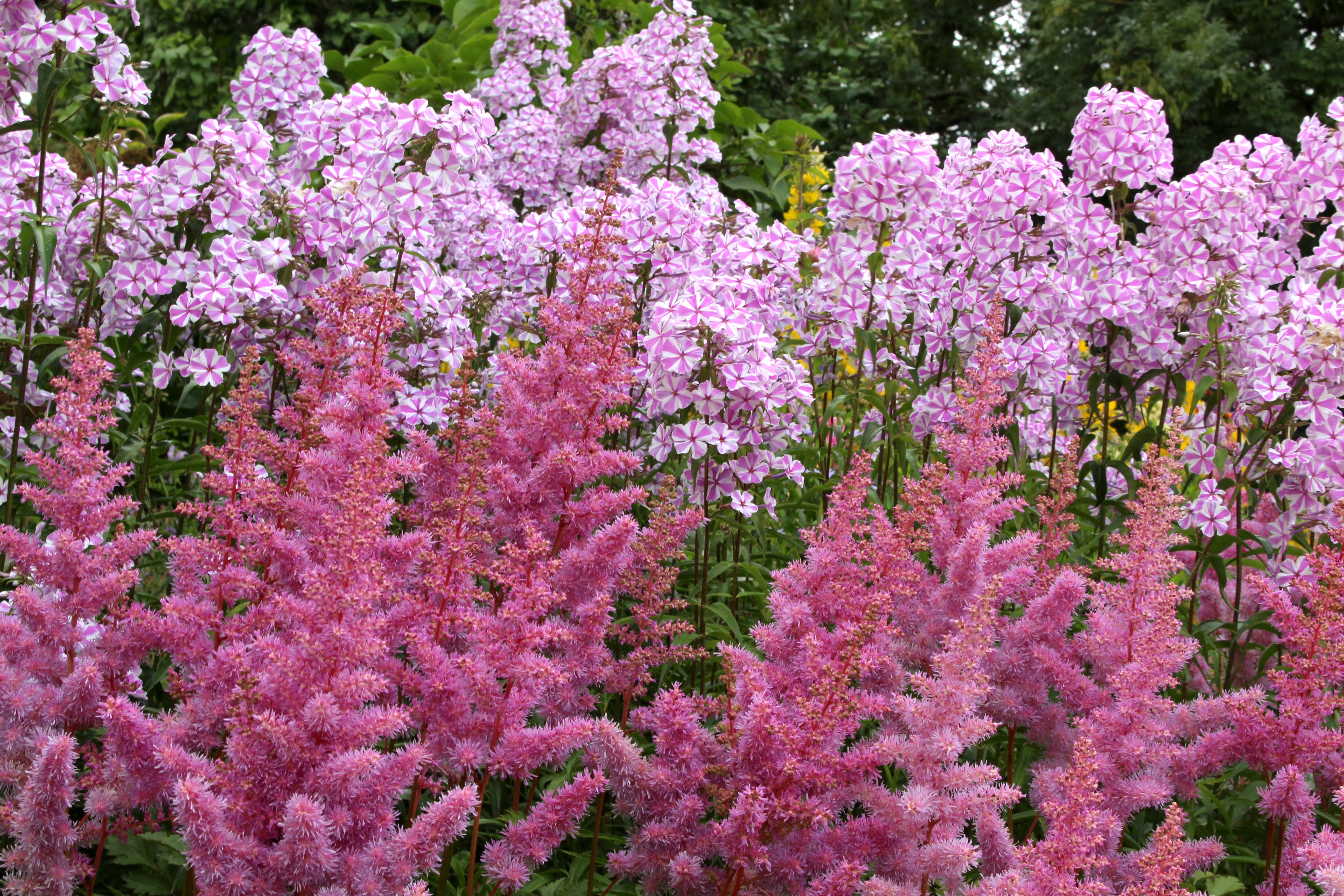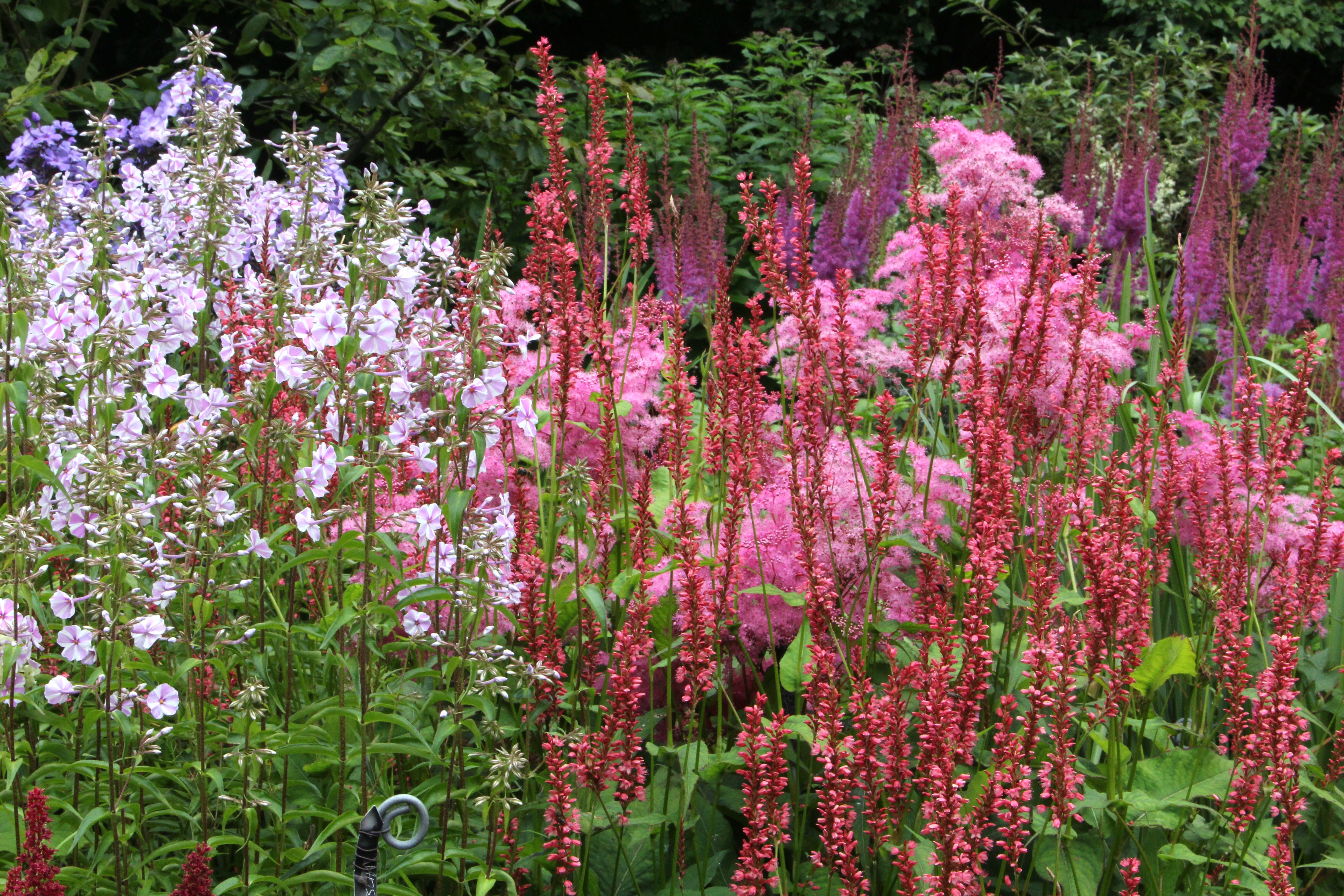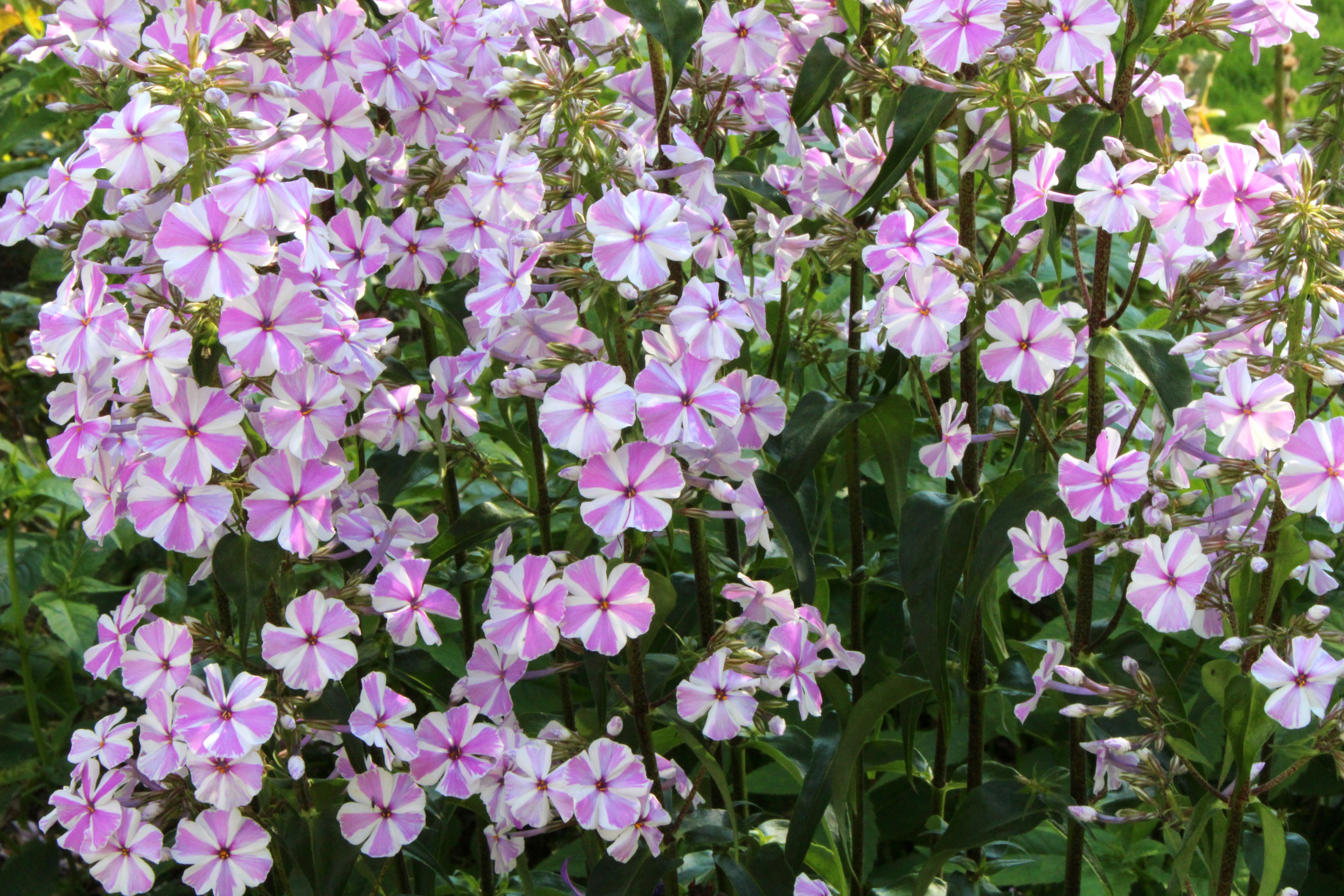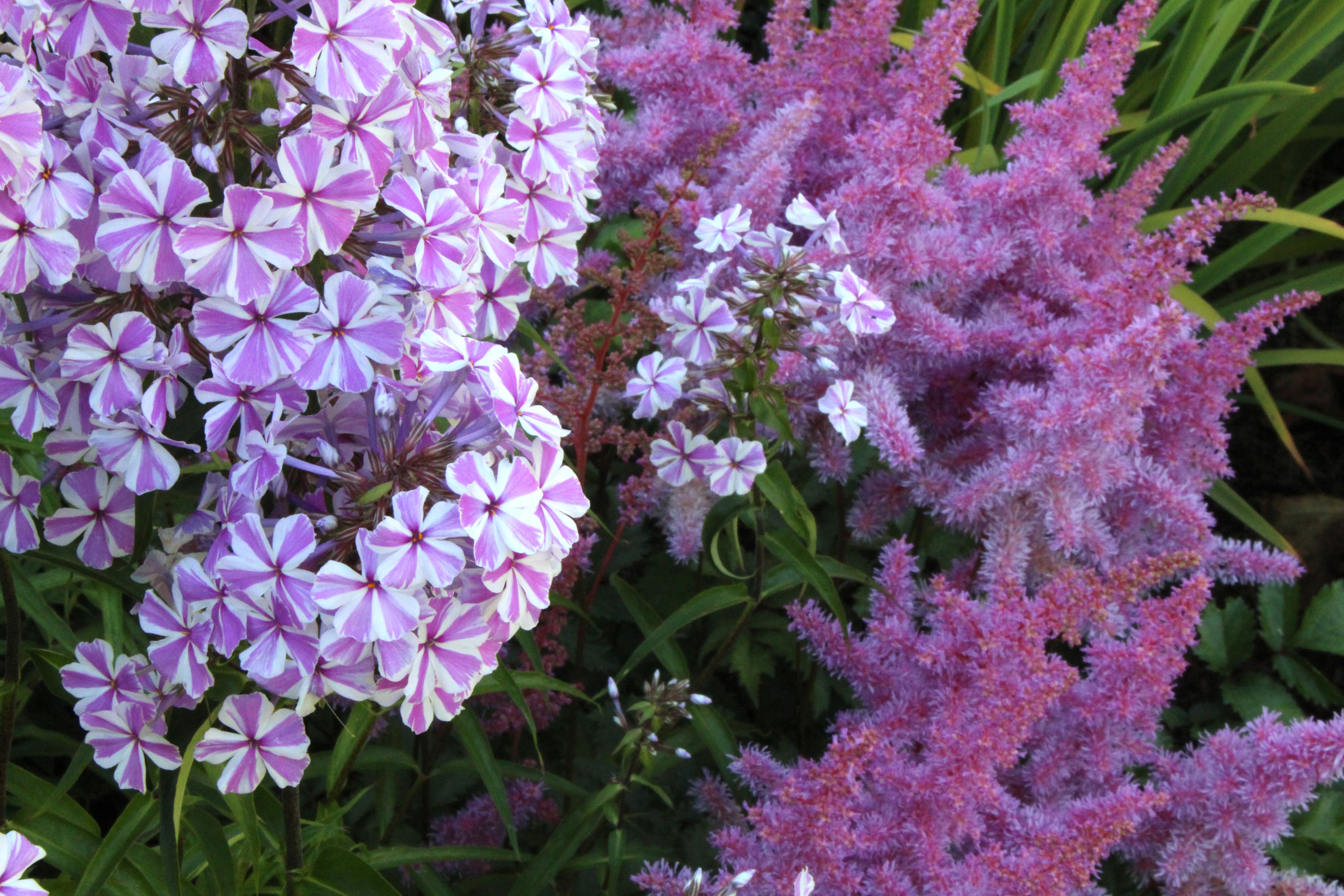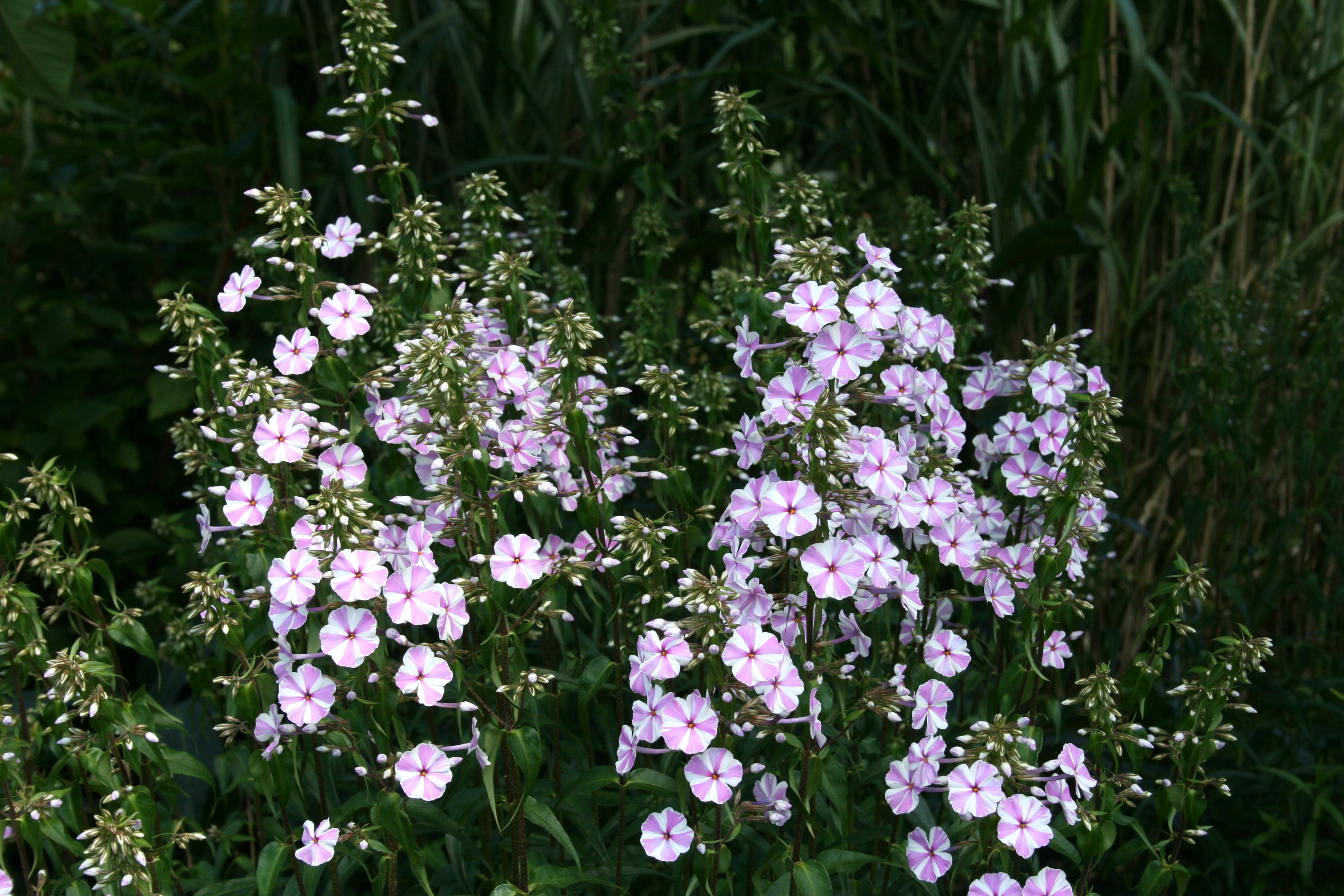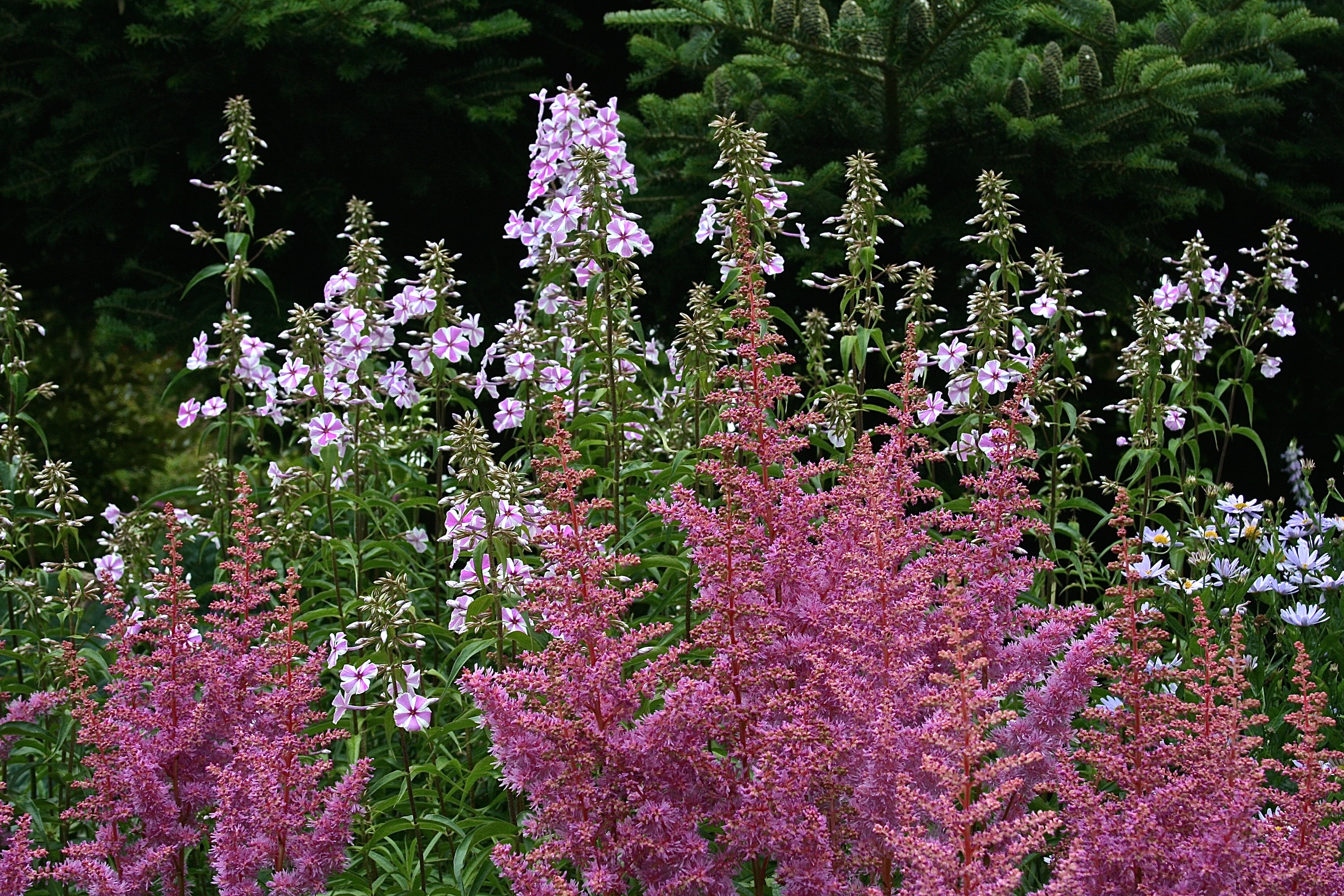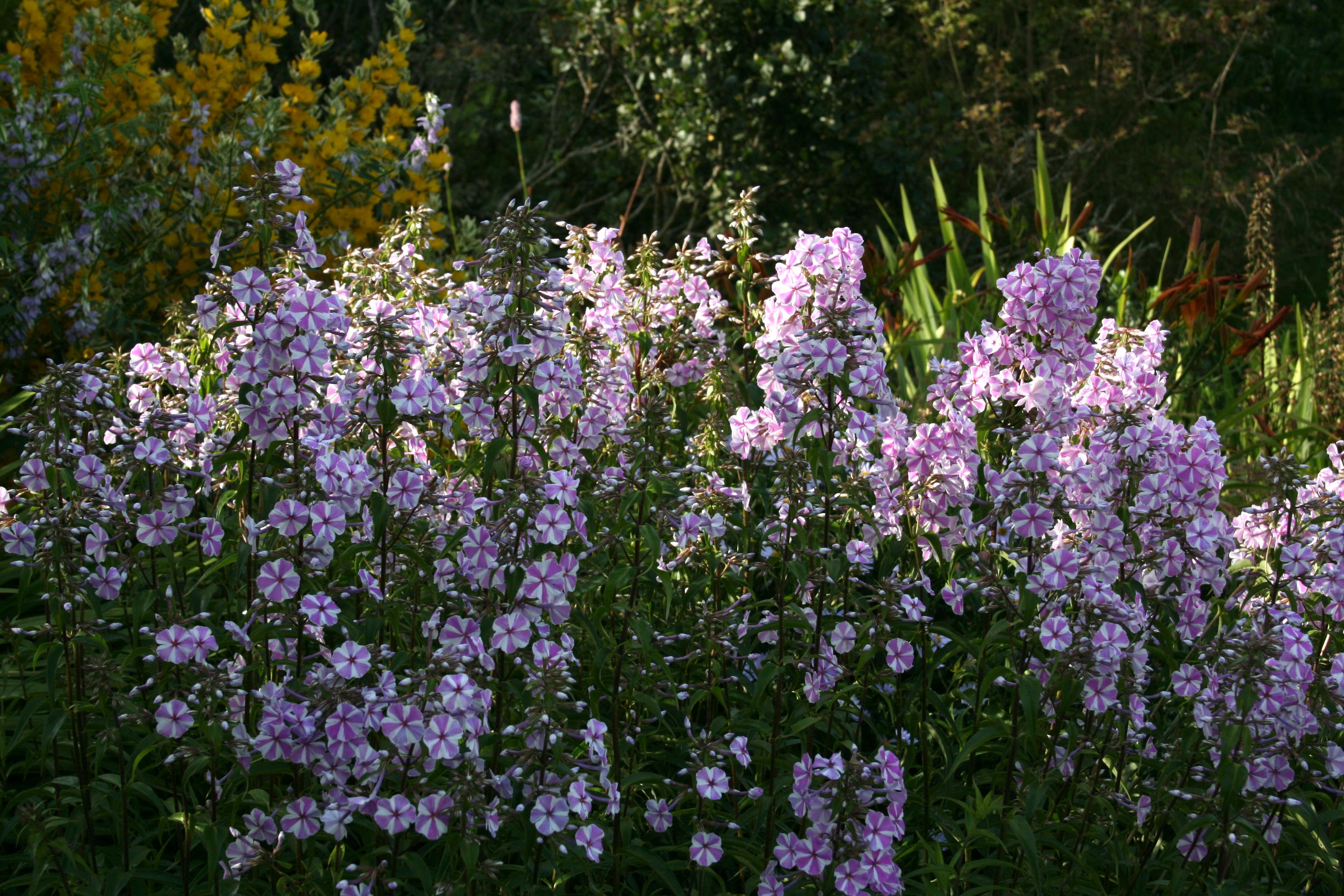Phlox maculata 'Natascha'
Approx. 0.5 litre pot
About this cultivar:
Phlox maculata 'Natascha' is another one our our favourites. It is my top 10 anyway (Paul that is). After all the years we've been in this business, this is one of the plants that we are still utterly, madly, in love with. This '90s, way cool, selection was discovered in 1989 as a sport of Phlox maculata 'Omega' by Luc Klinkhamer of Holland while visiting the Minsk Botanic Garden (former USSR). Tough as old nails, we never never never see any disease or mildew on this cultivar. It is named after Natascha Lunina, the garden curator at Minsk, and is topped in early summer with unbelievable bicolour flowers of pinkish purple-and-white.
- Position: Full sun, partial shade
- Soil: Almost any soil, grows well in Ballyrobert
- Flowers: July, August, September
- Other features: Bees and Butterflies
- Hardiness: Fully hardy, grows well in Ballyrobert
- Habit: Clump forming, Columnar or Upright
- Foliage: Deciduous
- Height: 60 - 90 cm (2 - 3 ft)
- Spread: 30 - 60 cm (1 - 2 ft)
- Time to full growth: 2 to 5 years
- Plant type: Herbaceous Perennial
- Colour: Green, purple, white
- Goes well with: Many - but we love Roses, Grasses, and Astilbe
About this genus:
Phlox gets its name from the Greek for flame. It is a genus of 67 species of perennial and annual plants in the Jacob's Ladder family (Polemoniaceae). They are found mostly in North America (one in Siberia) in diverse habitats from alpine tundra to open woodland and prairie. Some flower in spring, others in summer and autumn. Flowers may be pale blue, violet, pink, bright red, or white. Many are fragrant. Some species such as P. paniculata (Garden Phlox) grow upright, while others such as P. subulata (Moss Phlox, Moss Pink, Mountain Phlox) grow short and matlike. A variable genus!
All the Phlox we have to sell, like all our plants, have been grown and trialed in our own garden. We've found them to be unfussy - full sun to part shade and almost any non-waterlogged soil should be fine.
Combinations are many - but we love Roses, Grasses, and Astilbe.

